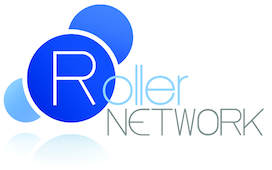Due to a majority of our suppliers increasing prices for various reasons over the last year, we will be raising some of our prices.
For all new service orders and change orders signed after February 1, 2022, existing customers that are past the end of their term agreement, and month-to-month customers, the following prices will be increasing 5%:
Full Rack Colocation Package
- Old Price: $949.00
- New Price: $996.45
Half Rack Colocation Package
- Old Price: $449.00
- New Price: $471.45
Shared Space Colocation
- 1U: $99.00 (No Change)
- 2U: $109.20
- 3U: $117.60
- 4U: $134.40
- 5U: $145.95
- 6U: $166.95
- 7U: $198.45
- 8U: $229.95
- 9U: $250.95
- 10U: $271.95
The included IPv4 subnet for shared space colocations will be changed from a /29 to a /30.
Custom Colocation Package Base Rates
Full Rack Base Rate
- Old Price: $349.00
- New Price: $366.45
Half Rack Base Rate
- Old Price: $180.00
- New Price: $189.00
Antenna Colocation
List prices for antenna colocation are remaining the same, but any customers currently receiving discounted rates for antenna colocation will be updated to current list price. We will also be normalizing all antenna colocation related charges into one of the three antenna classes; previously we would charge adjusted amounts for accessories.
Discounted Rates Carried Past End-of-Term
Any previously contracted discounts that have remained past the end of their term agreement will be removed, and current list price will be applied.
Work Rates
- Work Rate (daytime hours): $99/hr
- Work Rate (after hours or holiday): $199/hr
Prices for add-on items or demand charges – such as power, bandwidth, cross connects, outlets, ports, IP addresses, etc. – will remain unchanged. Setup fees will also remain unchanged.
If you are an existing customer under a term agreement your pricing WILL NOT change: the agreement protects you from price increases for the duration of the term.
Effective February 1, 2022 the new prices shown here supersede all other previously published pricing for the affected services, such as literature that was published prior to this date, quotes, service orders or change orders that are not signed by 5:00pm Pacific time on January 31, 2022, and any other places pricing may be shown that has not been updated due to error or omission.
For agreements that allow a term renewal, this only applies to the services originally contracted. Any new services or changes will be quoted with prices in effect at the time of the request. Renewal option must be exercised before term expiration.
